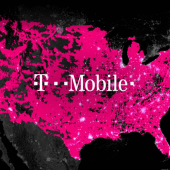-
BitDefender fixes bug allowing attackers to run commands remotely
Security solutions are designed to keep an organization safe, but those models crumble when that same software becomes a threat vector for the attackers to exploit. Such is the case with a new Bitdefender remote code execution vulnerability, dubbed CVE-2020-8102, lurking in its Safepay browser component.
- June 22, 2020
- 03:03 PM
-
 0
0
-
BlueLeaks data dump exposes over 24 years of police records
In what is being referred to as 'BlueLeaks,' a group called Distributed Denial of Secrets (DDoSecrets) has released a 269 GB data dump containing 24 years worth of records from over 200 police departments.
- June 22, 2020
- 02:07 PM
-
 1
1
-
Why did this Bank of America phishing email bypass spam filters?
Threat actors trying to steal your credentials through phishing attackers is nothing new, and the number of campaigns has only been rising in recent times.
- June 18, 2020
- 09:00 AM
-
 0
0
-
T-Mobile outage caused by fiber circuit failure, not DDoS attacks
Rumors began circulating on Twitter yesterday that the U.S. was under a massive DDoS attack. It turns out T-it was caused by a problem with a leased fiber circuit.
- June 16, 2020
- 12:09 PM
-
 0
0
-
Attackers impersonate secure messaging site to steal bitcoins
In what can be described as the case of both cybersquatting and phishing, threat actors have created a site that imitates the legitimate secure note sharing service privnote.com to steal bitcoins.
- June 14, 2020
- 02:02 PM
-
 1
1
-
Windows 10 Privacy Settings bug lets users change admin options
An "Important" and equally ironic vulnerability, tracked as CVE-2020-1296 was fixed in the Microsoft June 2020 updates that allows privilege escalation in the Windows Diagnostics & Feedback settings app: the annoying privacy setting screen is shown to users when setting up or upgrading Windows.
- June 13, 2020
- 01:37 PM
-
 0
0
-
IBM Cloud global outage caused by "incorrect" BGP routing
On June 9th, 2020, IBM Cloud data centers suffered a global outage that caused connectivity issues for many of the web sites and platforms utilizing the service, including BleepingComputer.
- June 11, 2020
- 11:19 AM
-
 0
0
-
Expiring SSL certs expected to break smart TVs, fridges, and IoTs
On May 30th, select Roku streaming channels stopped working, leaving impacted customers clueless with no idea what was wrong.
- June 10, 2020
- 05:46 PM
-
 2
2
-
Google's indexing of WhatsApp numbers raises privacy concerns
Google is indexing the phone numbers used on WhatsApp, and a researcher is concerned that it could cause privacy issues or be used for malicious purposes.
- June 08, 2020
- 03:30 AM
-
 0
0
-
ZEE5 allegedly hacked by 'Korean hackers', customer info at risk
A hacker identifying themselves as "John Wick" and "Korean Hackers" claim to have breached the systems for Indian media giant ZEE5 and are threatening to sell the database on criminal markets.
- June 06, 2020
- 02:19 PM
-
 0
0
-
USBCulprit malware targets air-gapped systems to steal govt info
The newly revealed USBCulprit malware is used by a group known as Cycldek, Conimes, or Goblin Panda and is designed for compromising air-gapped devices via USB.
- June 04, 2020
- 09:43 AM
-
 0
0
-
This wallpaper will crash your Android phone: don’t try it.
In what can be described as a truly mysterious phenomenon, an image of a picturesque lake, when set as wallpaper on select Samsung and Google Pixel devices, causes the phone screen and the device to go nuts.
- June 03, 2020
- 07:30 AM
-
 0
0
-
Apple pushes fix across ALL devices for “unc0ver” jailbreak flaw
As reported by BleepingComputer, the company recently patched a critical flaw in its "Sign in with Apple" service. What follows now is a mega update across all its major operating systems and devices.
- June 02, 2020
- 12:32 PM
-
 0
0
-
Joomla data breach leaks 2,700 user records via exposed backups
A Joomla database leak has exposed the personal information, including hashed passwords, of 2,700 individuals registered on the Joomla Resources Directory (JRD).
- June 01, 2020
- 01:50 PM
-
 0
0
-
"Sign in with Apple" vulnerability earns researcher $100,000
Remember seeing that slick "Sign in with Apple" button across many websites and apps? It turns out that a vulnerability allowed attackers to log in to sites using any Apple ID.
- June 01, 2020
- 10:36 AM
-
 0
0

 1
1











